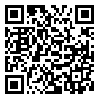Volume 24, Issue 95 (In press 2024)
refahj 2024, 24(95): 0-0 |
Back to browse issues page
Research code: 991503
Ethics code: IR.MUMS.REC.1399.614
Clinical trials code: ندارد
Download citation:
BibTeX | RIS | EndNote | Medlars | ProCite | Reference Manager | RefWorks
Send citation to:



BibTeX | RIS | EndNote | Medlars | ProCite | Reference Manager | RefWorks
Send citation to:
Khalvati M, Babaeian N, Ostadhashemi L, Marouzi P, Ghaderi Sanavi R A, Khalvati M et al . (2024). Attitudes of n students and social workers toward poverty in Iran. refahj. 24(95), : 9
URL: http://refahj.uswr.ac.ir/article-1-4247-en.html
URL: http://refahj.uswr.ac.ir/article-1-4247-en.html
Maliheh Khalvati 

 , Nasrin Babaeian
, Nasrin Babaeian 

 , Leila Ostadhashemi
, Leila Ostadhashemi 

 , Parviz Marouzi
, Parviz Marouzi 

 , Ramezan Ali Ghaderi Sanavi
, Ramezan Ali Ghaderi Sanavi 

 , Mahboube Khalvati
, Mahboube Khalvati 

 , Masoude Babakhanian *
, Masoude Babakhanian * 




 , Nasrin Babaeian
, Nasrin Babaeian 

 , Leila Ostadhashemi
, Leila Ostadhashemi 

 , Parviz Marouzi
, Parviz Marouzi 

 , Ramezan Ali Ghaderi Sanavi
, Ramezan Ali Ghaderi Sanavi 

 , Mahboube Khalvati
, Mahboube Khalvati 

 , Masoude Babakhanian *
, Masoude Babakhanian * 


Abstract: (19 Views)
Introduction
Methods
The methodology of this study was descriptive and validation, which was conducted in 2021 with the participation of 450 employed social workers and students who were selected by available sampling method. After obtaining permission from the designers of the questionnaire, its translation was done in accordance with the standard protocol of the World Health Organization. T-test and one-way analysis of variance were used to compare the attitudes of student and employed social workers.
Findings
Content validity indices were obtained for the whole questionnaire CVR = 0.74 and S-CVI = 0.23. The results of exploratory and confirmatory factor analysis extracted three factors: "stereotypes", "individual approach" and "structural approach". Also, the reliability of the instrument was obtained using Cronbach's alpha coefficient of 0.68 and intra-cluster correlation of 0.75. There is a difference between the attitudes of employed social workers and students about poverty. Employed social workers were more inclined to social structure and stereotypes about poverty.
Discussion
The Persian version of the attitude towards poverty in social workers had a relatively good validity and reliability. And the use of this tool in future studies on the population of social workers is recommended.
Attitudes and beliefs of social workers towards poverty and social exclusion affect the way they define the problem and their intervention methods to reduce or eliminate it. The present study was designed with the aim of translating, adapting and standardizing the Persian version of the poverty attitude questionnaire among social workers and students in Iran and comparing their attitudes in 2021.
Methods
The methodology of this study was descriptive and validation, which was conducted in 2021 with the participation of 450 employed social workers and students who were selected by available sampling method. After obtaining permission from the designers of the questionnaire, its translation was done in accordance with the standard protocol of the World Health Organization. T-test and one-way analysis of variance were used to compare the attitudes of student and employed social workers.
Findings
Content validity indices were obtained for the whole questionnaire CVR = 0.74 and S-CVI = 0.23. The results of exploratory and confirmatory factor analysis extracted three factors: "stereotypes", "individual approach" and "structural approach". Also, the reliability of the instrument was obtained using Cronbach's alpha coefficient of 0.68 and intra-cluster correlation of 0.75. There is a difference between the attitudes of employed social workers and students about poverty. Employed social workers were more inclined to social structure and stereotypes about poverty.
Discussion
The Persian version of the attitude towards poverty in social workers had a relatively good validity and reliability. And the use of this tool in future studies on the population of social workers is recommended.
Article number: 9
Keywords: standardization, Cross-Cultural Adaptation, Cultural Adaptation, Attitudes Toward Poverty, Employed Social Workers, Social Work Student
Type of Study: orginal |
Received: 2023/08/30 | Accepted: 2024/05/6 | Published: 2024/12/22
Received: 2023/08/30 | Accepted: 2024/05/6 | Published: 2024/12/22
Send email to the article author
| Rights and permissions | |
 |
This work is licensed under a Creative Commons Attribution-NonCommercial 4.0 International License. |



